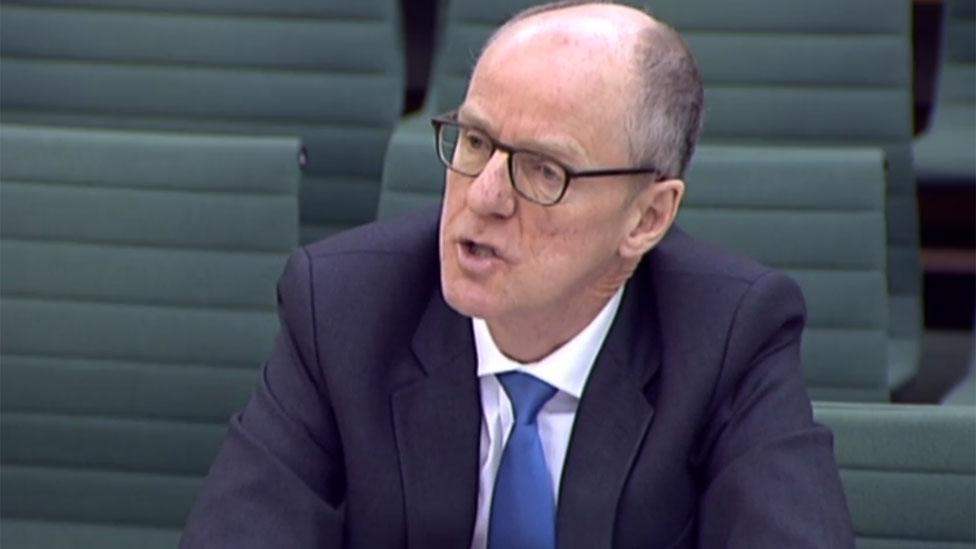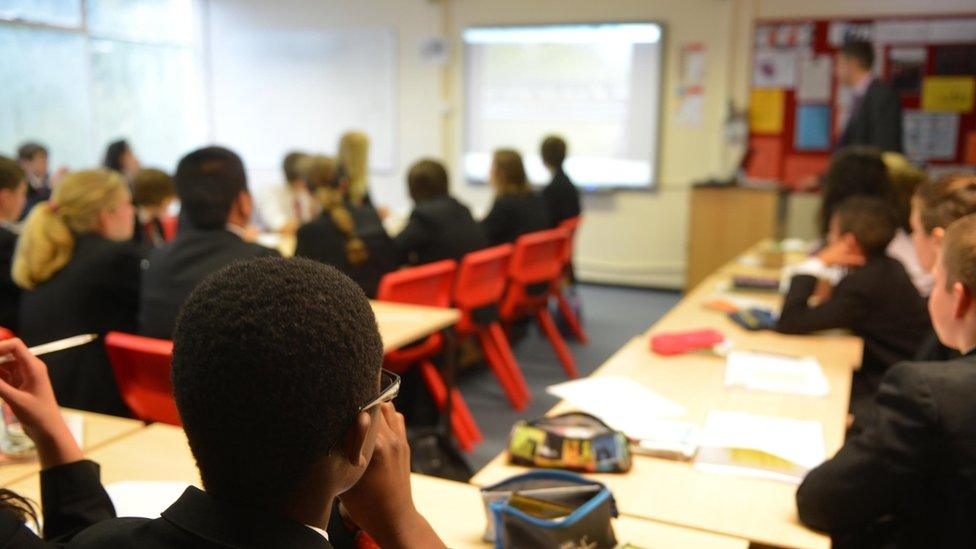Half of academies fall short on funding
- Published

The figures obtained by the Lib Dems show rising numbers of academies falling short on funding
More than half of academies in England have lacked enough income to cover their annual expenditure, according to figures revealed by ministers.
An answer to a Parliamentary question shows that the proportion of academy trusts with an annual shortfall doubled in two years.
It comes amid growing warnings about school funding shortages.
But Schools Minister Nick Gibb told MPs on Tuesday that school funding had been protected and was at record levels.
The figures have been revealed in response to a question about academy expenditure from the Liberal Democrat peer Lord Storey.
Funding concerns
These figures for 2014-15 show that 53% of stand-alone academies were recorded as having "spent more than their income per year", up from 42% in the previous year.
Among multi-academy trusts, the proportion spending more than their income was 53%, compared with 25% in the previous year.

Nick Gibb says there is no "silver bullet" on reforming funding
This did not necessarily mean that the academies were left in deficit - as they could have been using reserves from previous years.
The ministerial answer says that in 2014-15 only 4% of academy trusts had such a "cumulative deficit".
But the Liberal Democrats say that it shows a rising problem with inadequate funding, for academies as well as local authority schools.
"Academies are already falling short of cash and this a deep concern to staff and parents. It shows that the system that the Conservatives have created has a shaky foundation," said Liberal Democrat education spokesman John Pugh.
"The government want to pretend that academies and free schools are the answer to the funding problems but this shows that they're not immune to the impact of the government slashing education budgets," he said.
School leaders have been increasingly vocal in concerns about funding levels.
Head teachers have been warning about having to cut school hours, governors have threatened to refuse to sign off budgets and grammar school leaders have said they might have to start charging parents.
Last week, heads were angered when it was revealed that £384m earmarked for converting schools into academies last year had been taken back by the Treasury.
On Tuesday, Nick Gibb, minister for school standards, faced questions from the education select committee on school funding.
He rejected suggestions of underfunding for schools and told MPs that the government had "protected funding at a time when we are dealing with an historic budget deficit".
Mr Gibb said schools were receiving more than ever before - and that this would rise with a further increase in the school population.
The way that school funding is shared out to individual schools is also being changed - with the launch of a new funding formula.
The schools minister said that the government had "grasped the nettle" on needing to reform a funding system that was often uneven and unfair.
But there was no "silver bullet" on school funding, he said, and switching to a new formula would mean winners and losers.
A Department for Education spokeswoman said these figures were about income and expenditure within the year - rather than overall deficits.
"An academy trust is required by law to balance its budget from each academic financial year to the next," said the DFE spokeswoman.
"Where the board of an academy is proposing to set a deficit budget for the current financial year, it must notify the Education Funding Agency (EFA).
"Wherever appropriate, the EFA will provide support to academy trusts experiencing financial difficulty but where we find financial mismanagement or irregularities we will not hesitate to take swift action."
- Published31 January 2017

- Published27 January 2017

- Published25 January 2017
